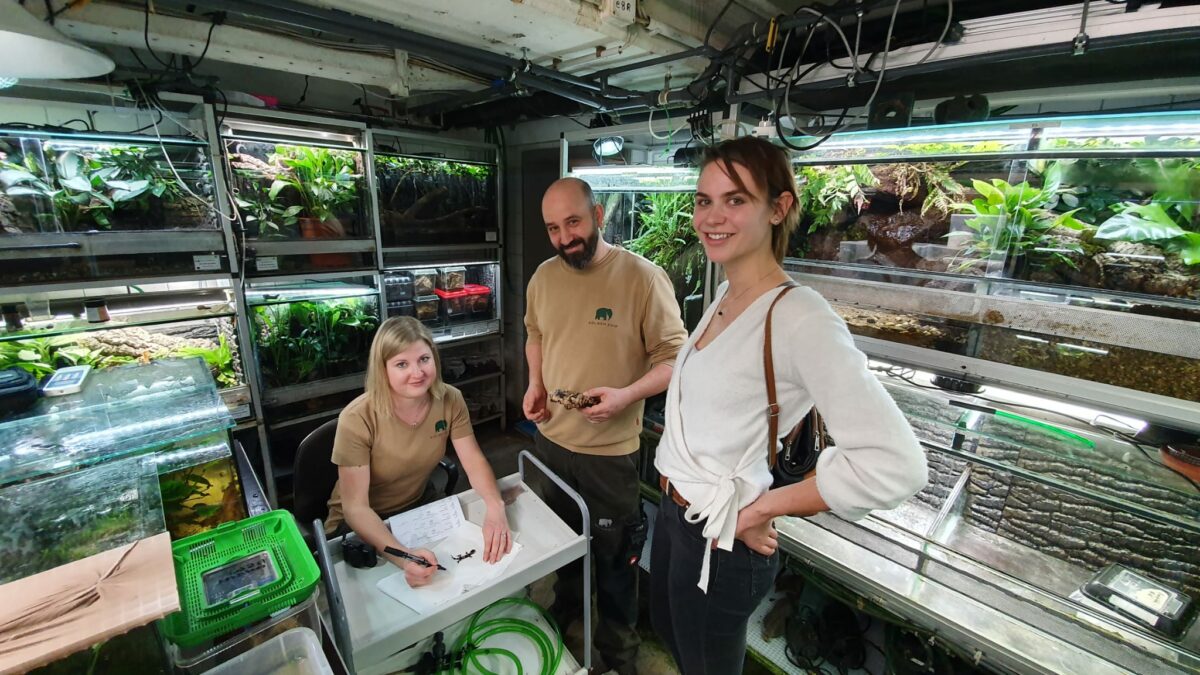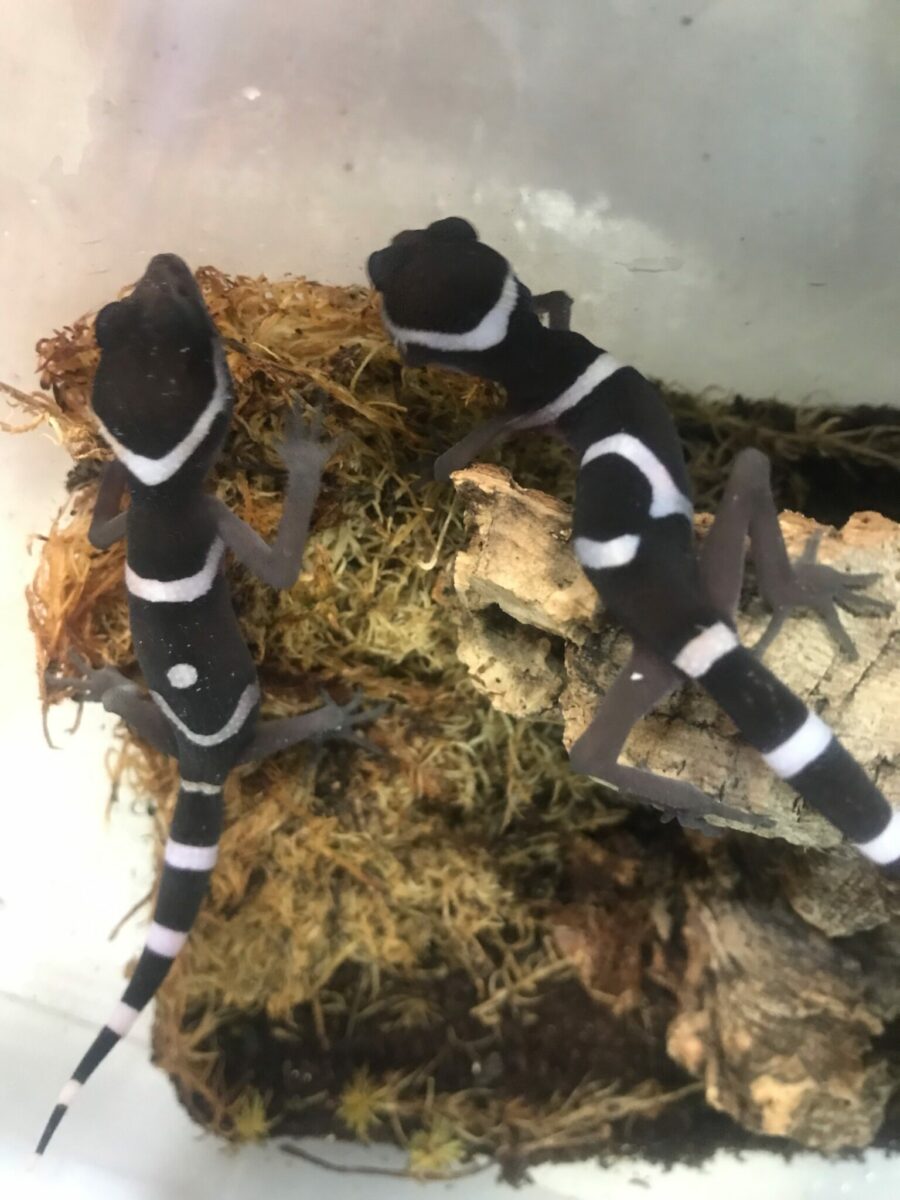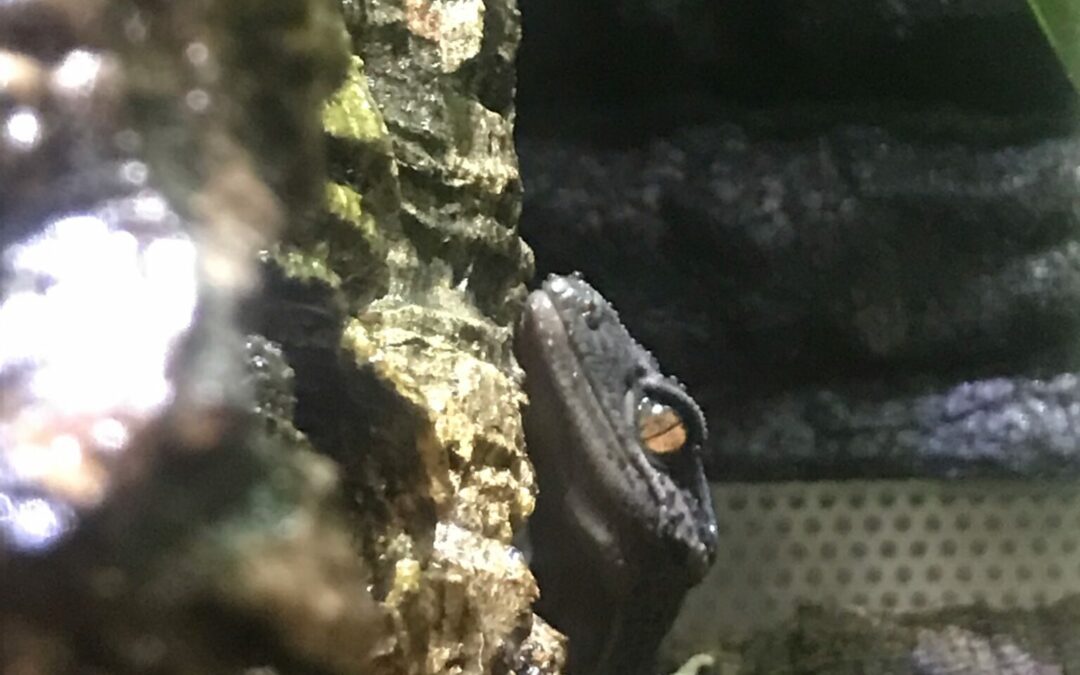Imagine waking up in a zoo: sunlight shining through the top of the roof, zookeepers feeding the elephants, bustling noises of animals around you. Well, that is what Sarah Goymer, a senior majoring in biological science, experienced when she embarked on a one-week solo trip to Cologne, Germany! During her Thanksgiving break, she had the opportunity to explore one of the biggest conservation hotspots in the world. There, she learned about the zoo’s program that fosters over 100 species currently threatened with extinction. The team mainly worked with geckos from five different Goniurosaurus genus species: G. huuliensis, G. araneus, G. catbaensis, two groups of G. luii, and G. lichtenfelderi. Goymer noted that the geckos are “critically endangered due to habitat loss and exploitstion because of the exotic pet trade unfortunately.” Through this trip and the knowledge garnered from it, Goymer and the Grismer lab hope to start a conservation project here at La Sierra University.

After arriving in Germany, Goymer met with a team of world-renowned herpetologists who showed her what kinds of conservation efforts they were working on and how to take care of these specific species of geckos. Since the Grismer lab plans to start the conservation efforts with these species of geckos, it is essential that Goymer teaches her lab coworkers the proper treatments and protocols to nurture the geckos.

The conservation project presents a unique title to La Sierra University as no other university in the world manages a project like this. It is hard to even find these programs in zoos! By designing this system, the lab hopes to rescue endangered species, eventually return them to their respective home countries, and repopulate their habitats. Goymer emphasized that the Grismer lab is more than just the papers it publishes; it is also a hands-on lab that takes specific actions to conserve species on the brink of extinction. She claims that labs should not only be research-based but conservation oriented as well: “While it’s really important to describe, discover, and learn about habitats of creatures, it’s also important to preserve the habitats and what’s there.” None of this would have been possible, however, if it were not for the opportunities presented to her.

Goymer started off as an anthropology major at La Sierra. But, the material covered in Dr. Jesse Grismer’s general biology class fascinated her. This led her to contact Grismer about potential projects during the “COVID years,” after which she was invited to a lab meeting. She attended and loved it, so she made the switch to biological science! Over the past two and a half years, she has been working hand in hand with the Grismers’ herpetology lab while working on a biology degree. She also claims that the Honors program has assisted her in some ways too.
She thanks the Honors professors for their general support as they are always providing opportunities and encouraging her. She also offered a token of appreciation to the Honors community because she always felt supported to go on these kinds of ventures and share her findings with them. She initially joined the Honors program in hopes of finding like-minded students who wanted to have discussions and who thought more creatively. Her expectations were met when she took several Honors classes and found that the thinking process being taught to students was, in fact, what she was looking for.


Her research over the past few years in the Grismer lab was on the Lepidodactylus genus of geckos, and it is very exciting! She found that species would be genetically identical to one another, but their morphologies would differ. This trip would establish a new source of research for future students to come.
A piece of advice that Goymer offers to students interested in research is to do something you are passionate about! She has learned to embark into her field with a mindset of “I’m here to learn. I’m here for the animals.” Moreover, she encourages others to take up a similar mindset as well. And, to those interested in the Honors Program, she wants them to embrace the growth and to not be afraid of changing their way of thinking! She believes it is crucial to be open to discussion.
Goymer reminds that with all you do, make sure to show grit and resilience, but do not forget to express yourself. Love of learning and passion for a subject cannot be faked, so show that you want to take action and reach for your dreams.
— Caleb Kim (Biomedical Science, Class of 2025)

